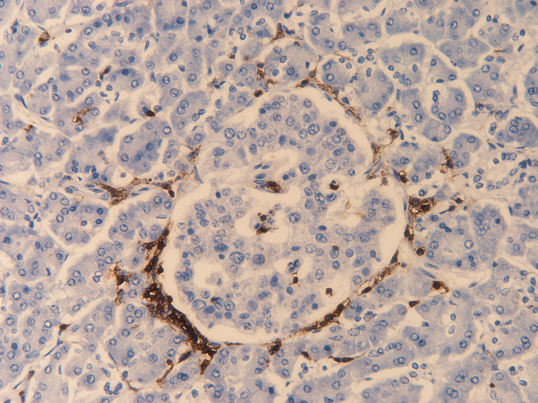During his career as a pathologist working in Scotland, Professor Alan Foulis compiled the world’s largest collection of autopsy pancreas samples recovered from patients who died shortly after receiving a diagnosis of type 1 diabetes. This collection was first assembled in the early 1980s from centres across the UK and it consists of nearly 200 cases in total, more than 100 of which are from young people (<20 years old) with recent-onset type 1 diabetes. The samples were originally held in Glasgow but, upon his retirement in 2015, Professor Foulis transferred them to University of Exeter Medical School, where they are now retained. Examples of stained images from the cases have been scanned in digital format and are provided here for public viewing.
Study of these cases has been hugely influential in shaping our current understanding of the aetiology of type 1 diabetes. For example, it has revealed that hyper-expression of class I MHC antigens is likely to be critical to islet cell destruction and has also allowed the first detailed profiling of immune cells present within inflamed islets. Interrogation of the samples has also shown that enteroviral infection of beta cells could contribute to the development of autoimmunity in type 1 diabetes. Thus, although it is now more than 30 years since this collection was first compiled by Alan Foulis, it continues to represent an invaluable resource for research into the causes of type 1 diabetes and is likely to do so for many years to come.

|

|
| Professor Alan Foulis | Insulitis in the human endocrine pancreas |